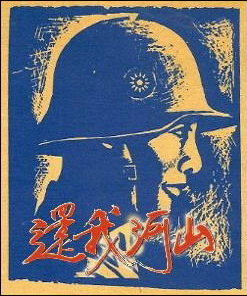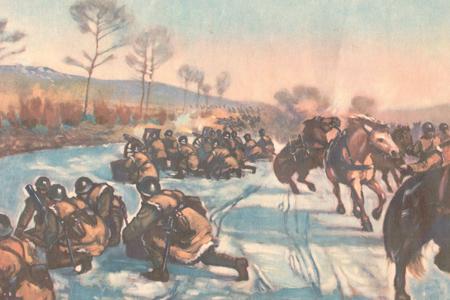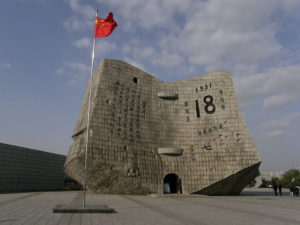A Date to Remember – Or Forget
- By Peter Harmsen
- 18 September, 2016
- No Comments
September 18 is a date many Chinese want to remember, and some Japanese want to forget. On that date, in 1931, Japanese officers blew up a piece of railroad at a pretext to invade northeast China, or what was then referred to as Manchuria. Years of Sino-Japanese tension erupted into open conflict, setting in motion events that would eventually lead to the Japanese Empire controlling large parts of not just China, but the entire Asia-Pacific.
The railway sabotage near the city of Mukden, known today as Shenyang, was carried out by Lieutenant Kawamoto Suemori, and had little actual effect. Trains would soon start running again. But Japanese officers bent on expansion immediately blamed the incident on Chinese guerrillas and moved to occupy Mukden and other parts of Manchuria “in retaliation”. They could use forces stationed in leased territory in the Liaodong peninsula, as well as in Korea, then a Japanese colony.
“An hour of unprecedented gravity has struck for the entire Chinese nation,” China’s Nationalist leader Chiang Kai-shek said in a message to the Chinese people. China also sought the help of the international community in hopes of stopping the Japanese invasion, but to no avail. The military resistance put up by warlords in Manchuria was of limited effect, and within a few months, the entire northeast of China was under Japanese control. In early 1932, it was transformed into Manchukuo, a Japanese-controlled puppet state.
The scene was set for years of low-intensity – and sometimes high-intensity – conflict between China and Japan. In 1937 it led to full-scale war between the two countries, followed in 1941 by the Japanese attack on Pearl Harbor, part of a larger plan to seize control of Southeast Asia and the resources needed to wage war in China.
In other words, September 18, 1931 was a key date in Asia’s gradual descent into war, and it is duly marked every year in China. Again this year in Shenyang, wailing sirens drowned out all other sounds to commemorate those killed 85 years ago, while Vice Premier Liu Yandong urged the Chinese people to “never forget the humiliation” of the past.
In Japan, there is much less attention paid to anniversaries such as this. Paradoxically, Emperor Akihito – the son of Emperor Hirohito, in whose name Japan’s war in the Asia Pacific was waged – has been a key figure in raising awareness. Last year, he reminded his people that the war’s roots were in 1931: “I think it is most important for us to take this opportunity to study and learn from the history of this war, starting with the Manchurian Incident of 1931, as we consider the future direction of our country.”
As Jeff Kingston, a scholar at Temple University in Japan, argues in an opinion piece in The Japan Times, the emperor’s remarks in 2015 challenged deeply held views among Japanese rightists:
Akihito was rejecting two revisionist conceits about WWII: that it was a defensive war forced on Japan by Western powers and that it was motivated by the noble goal of pan-Asian liberation. Invoking the Mukden Incident positions Japan as the aggressor in its subjugation of China, highlighting a gambit that led to escalating Japanese aggression in China and to a decision in 1940 to widen the war to Southeast Asia in order to secure the resources needed to vanquish China.





 Copyright © 2025
Copyright © 2025
Leave a Reply